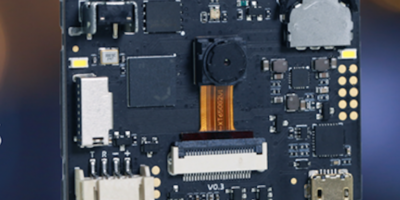The new RV4xxx series enables greater miniaturisation in automotive devices such as ADAS camera modules, says Rohm Semiconductor.
The compact 1.6 x 1.6mm MOSFETs are AEC-Q101-qualified. The MOSFETs are claimed to be the first in the industry to ensure the electrode height on the side of the package (130 micron) required for vehicle applications by using original wettable flank formation technology. The result is a consistent solder quality, says Rohm – even for bottom electrode type products – enabling automatic inspection machines to easily verify solder conditions after mounting. Automotive optical inspection is performed during the assembly process, but the height of bottom electrode components solder cannot be verified after mounting. The RV4xxx series uses a proprietary wettable flank technology that guarantees an electrode height on the side of the package of 130 micron. This is achieved by making a cut into the lead frame on the side of the package before plating. However, burrs resulting from cutting into the lead frame can occur more frequently as the height of the cut increases. Rohm’s method introduces a barrier layer on the entire surface of the lead frame to minimise the occurrence of burrs. This not only prevents component rise and solder defects during mounting, but is the first on the market to ensure a 130 micron electrode height on the side of DFN1616 (1.6 x 1.6mm) packages.
Schottky barrier diodes (SBDs) are commonly used in the reverse connection protection circuits of ADAS camera modules, but the larger currents required by high resolution cameras in advanced vehicle systems, call for the use of compact MOSFETs instead that provide low on resistance and less heat generation.
For example, at a current and power consumption of 2.0A and 0.6W, respectively, conventional automotive MOSFETs can reduce mounting area by 30 per cent compared with SBDs, says Rohm. In addition, adopting bottom electrode MOSFETs for their heat dissipation characteristics, while still supporting large currents in an even smaller form factor makes it possible to decrease mounting area by as much as 78 per cent compared with conventional SBDs and by as much as 68 per cent compared with conventional MOSFETs.
Samples are available now, with OEM qualities expected in September 2019.







